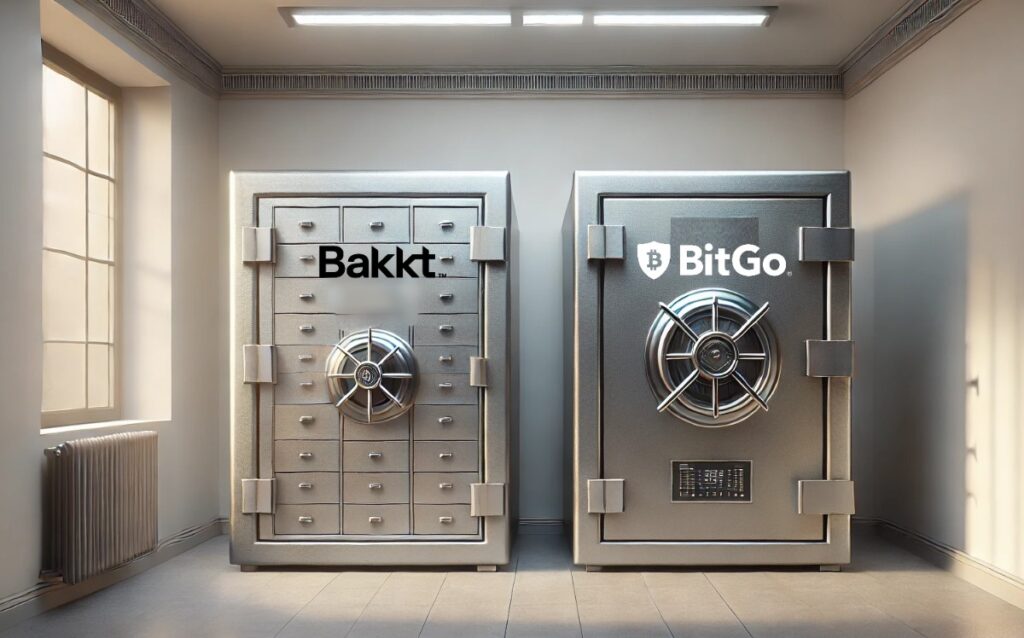Evan Cheng is a co-founder and CEO of Mysten Labs – the developers of Sui. Here he explains the huge market gap that Sui has been built from scratch to fill, what blockchains need to do to drive adoption – and why Ethereum’s Solidity programming language will ‘never be safe’.
He spoke to Brave New Coin’s Andy Pickering on The Crypto Conversation.
Andy Pickering: You have worked in important roles in two major tech companies – can you explain a little about your background and how you came to form Mysten Labs and Sui?
Evan Cheng: I’ve been in the tech business for 26 years. I did a couple of startups early in my career, then joined Apple and stayed there for 10 years. What I can say about Apple is that I wrote a lot of code back then and there are pretty much billions of devices out there now running my software which is exciting and scary at the same time.
So from that point on I moved to Facebook to build other programming languages and had a successful career at Facebook. The inflection point was in 2015. I started looking at cryptocurrency just like everybody else. Started out looking at Bitcoin then Ethereum and was sort of excited about the concept – a world computer.
So I started to get involved. I advised a number of projects such as Chainlink, and brought in speakers to guest lecture at Facebook. And before you know it Facebook started doing something in this space called the Libra Project. I joined it to run R & D. You probably know the story. we had some challenges with that project. But I was able to build out the team and I brought my team out in late 2021 to form Mysten Labs.
The TLDR is that I really believe the social trend, the product trend, is moving. The walled garden [a closed ecosystem in which service providers such as Apple or Google control all operations] is not going to be the model we see in the future. It’s going to be more collaborative across multiple different properties. You see the trend of individuals wanting to be in control of their own lives, wanting to be their own boss, wanting to be their own brand. It is inevitable and I absolutely believe the role public blockchains can play in that move. And I want to be part of that.
AP: You mentioned Ethereum – and to an extent, Sui is a layer one competitor to Ethereum. What is it about Ethereum that you think is not fit for purpose?
EC: People talk about security, but they still use, for example, Solidity. Well, let’s just be frank, from somebody with my background I can tell you Solidity will never, ever, ever be safe. It’s like, it hurts me. The first time I saw Solidity, I was like, no way, this is wrong. The software is written in a programming language that allows dynamic behavior which is not analyzable. So, you know, all these problems we’re seeing with reentrancy [reentrancy refers to a vulnerability that can occur when a smart contract function makes an external call to another untrusted contract], you know, it’s too fundamentally broken on that front.
That this is what I mean by Solidity will never be safe. And this is why we are seeing and will continue to see these hacks happen, right? Because it’s the dominant smart contract language and it’s really, really bad.
AP: So what makes Sui different, how does Sui differentiate itself from the other layer 1 blockchains?
EC: First of all, it’s, it’s not a clone. It’s not derived or a fork of anything, we built pretty much the entire stack from the ground up. We did that with the recognition that a lot of blockchains have limitations. Limitations that result in expensive usage, or they slow down.
All the other blockchains talk about scalability. Users want to know if I increase my usage, are you going to have the capacity to support me? That’s about elastic supply and demand balancing. So we’re looking at those things from a very different angle. So our entire pipeline, it’s how we think about scalability, how do we think about demand?
Some blockchains only have the hash on-chain. That’s ridiculous. The whole point of having blockchain is you want smart contracts to be able to operate on things automatically. If every smart contract is just a link to certain things that are off-chain, the smart contract can do nothing about them because it all looks the same. They are completely opaque. If you cannot store metadata on-chain, you are not able to represent assets fully. So you have to fix the on-chain storage problem. And it’s not a separate layer, a complexity solution. It has to be something natural.
AP: You have mentioned at times the adoption problem of blockchain products – how will Sui address those issues?
KC: If you are playing a Web3 game and you connect to your computer, the first thing it asks is ‘please connect your wallet’. You’re gonna lose 99% of the customers. And if you add another step, like please request some tokens to pay for gas. You’re going to lose the remaining 99% of the users. These things are just non-starters. Product builders don’t want to deal with it and consumers don’t want to deal with it.
You have to eliminate the complexity of the onboarding experience. So we’ve built powerful primitives [a “building primitive” refers to a basic, low-level software component or function that serves as a foundational element for constructing more complex structures or functionalities], that will solve those problems in ways that we don’t see other blockchains doing holistically as we are. That’s why we build things like zkLogin because you don’t want to ask consumers to think about wallets and seed phrase recoveries, all that type of thing.
AP: I’ve heard the concept is that a whole new wave of users should be able to access blockchain products using zkLogin and their email accounts – can you explain a little about how that will evolve?
EC: With zkLogin we’re able to abstract away the whole wallet experience of logging in – and instead just use a Google Gmail account. And you don’t have to think about all this complexity of managing your keys and all that as it’s completely non-custodial.
But then we build on top of that, right? So you’re going to see more and more use cases beyond just logins. We are going to change what a payment experience will look like. For example, I just send to you at andy.p@gmail.com and you get an email that says click this and the asset’s right there for you. Or if you’re building a game, you can send that to your customer. You know, here’s your starter key, don’t worry about downloading anything.
We’re working actively with our partners to build these products that will be showcases. The majority of the Web3 users are going to be brought in through these types of products – not because they are huge supporters of Cardano or whatever blockchain. That’s not enough. It’s relatively small in terms of the internet scale.
How many wallets are out there versus how many billions of email accounts are out there? It’s all going to operate this way. People in the industry need to recognize that we can’t continue to do the same thing over and over. We’ve got to break out. We can’t always be waiting for the bull run to come. We have to build products that hundreds of millions of consumers will want to come use, and that’s what ultimately will make us successful.

Sui’s inaugural global conference ‘Sui Basecamp’ is scheduled for April 10-11th in Paris







